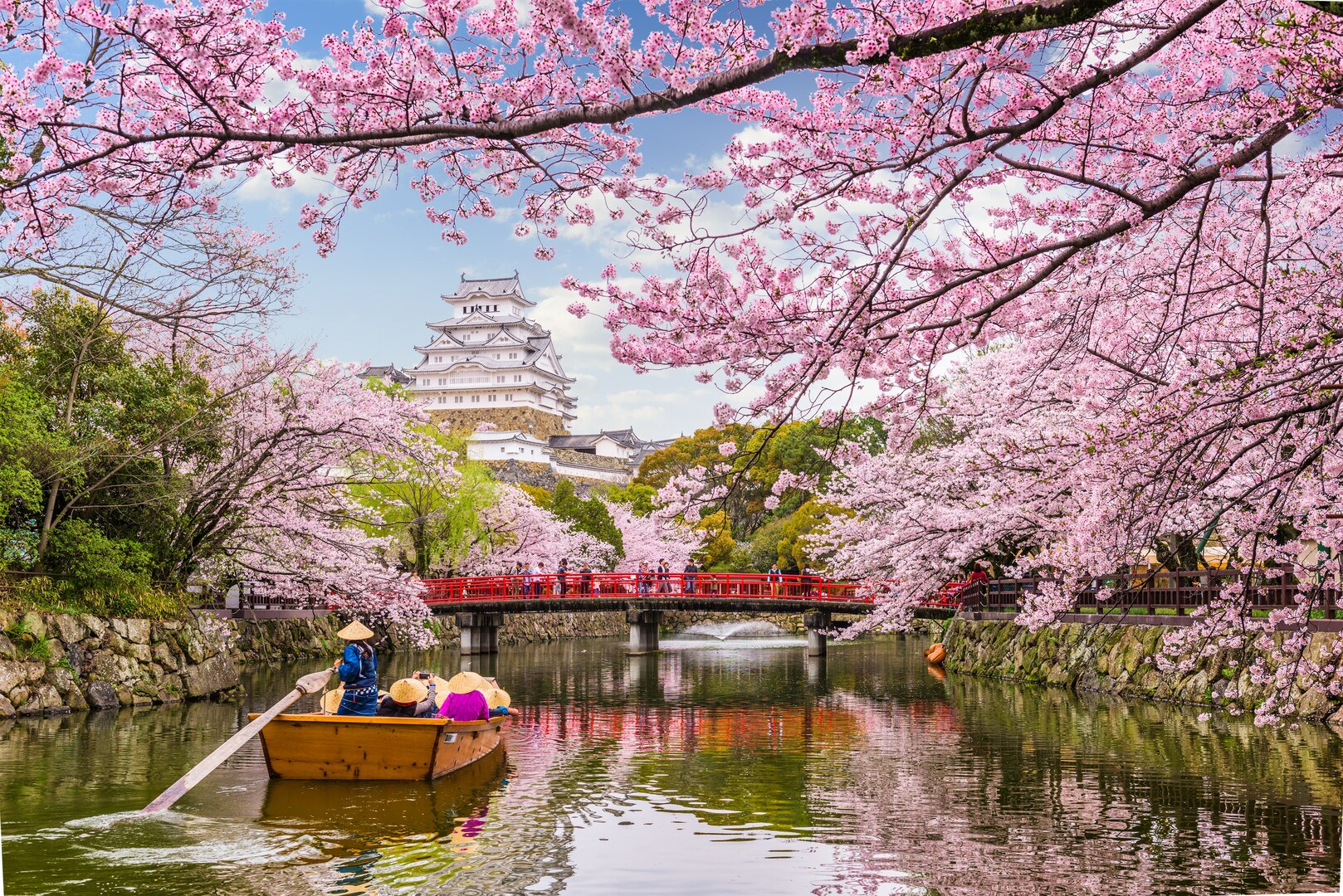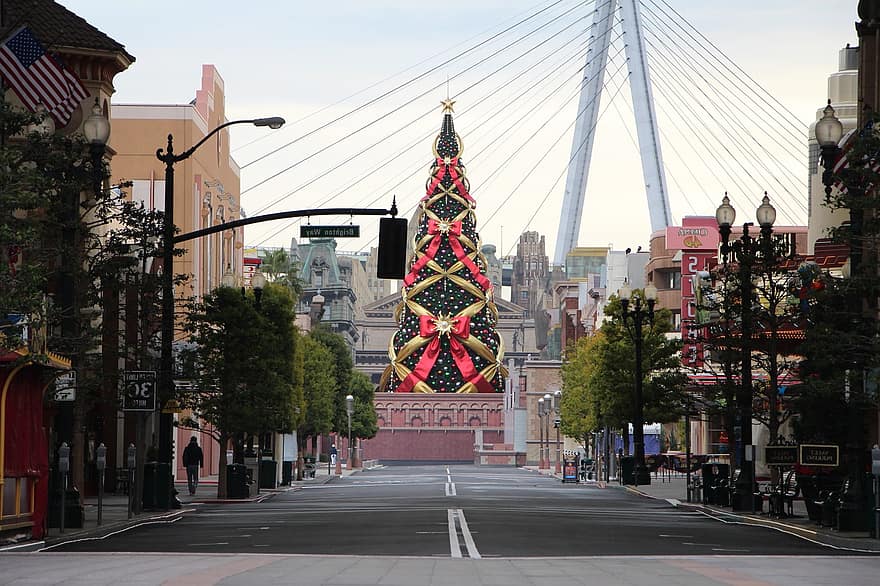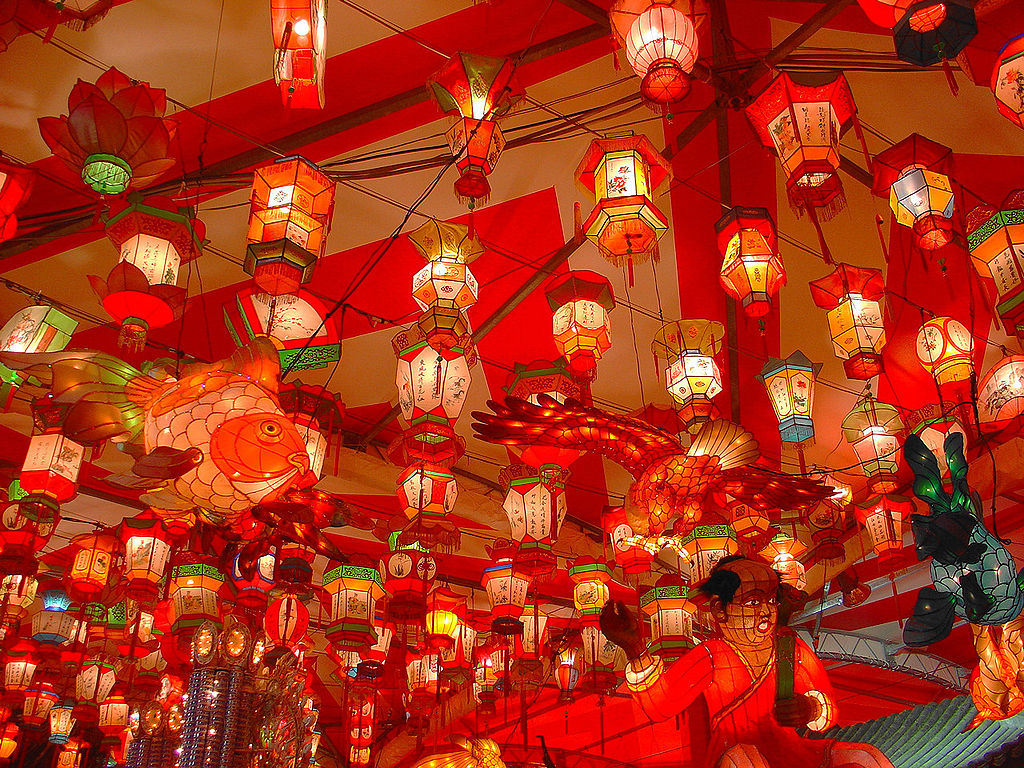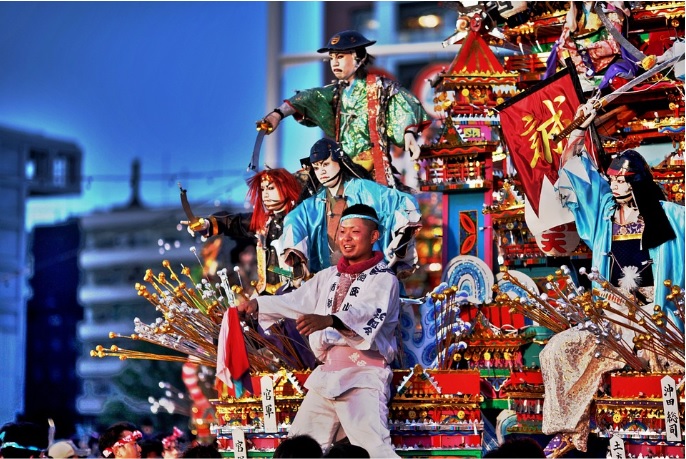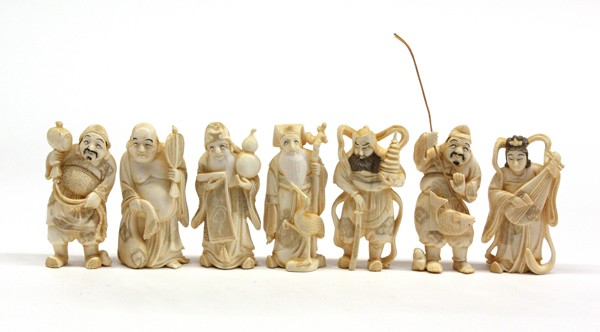
The Seven Lucky Gods are popular gods of Japan ever since the Edo era. They’re also known as The Seven Gods of Fortunes or The Seven God of Happiness. The term Shichi Fukujin means shichi (seven) fuku (luck) jin (beings). These seven gods came from diverse origins (Buddhism, Hindu, Chinese) and they all bring a symbol of luck. Each god have unique characteristics and associations.
1. Ebisu Among the seven gods, Ebisu is the only one who came from a Japanese ancestry. He is the god of wealth and prosperity. Moreover, he’s also considered as god of fishermen and patron of workers. He wears a traditional Japanese costume and a headdress. He holds a large fish that can be either a red sea bream, carp, cod or sea bass on his left hand which signify fortune and luck and a fishing rod on his right hand. Ebisu’s figure is often seen in restaurants.
2. Daikokuten Daikokuten or Daikoku was originally from China and was adapted by Japan wayback in 9th century. He is the god of commerce and prosperity and is also seen as the patron of farmers, cooks and bankers. Daikoku carries a lucky mallet of riches in his right hand and a sack of treasure slung on his left shoulder.
3. Bishamonten Originated from Hindu, Bishamonten is also known by the name of Vaisravana in Hinduism. He is the god of fortune in wars and battles. Believed to be the patron and protector of fighters, he’s also seen as the symbol of authority and has the power to heal. Bishamonten wears a Chinese armor and carries a right sword in his right hand.
4. Benzaiten She is the only female goddess among the seven. Benzaiten is also known for her other names Benten, Benzaitennyo and Bentensama. She came from Hindu and was adapted by Japan. Believed to be the goddess of love, she is also the patron of music, arts and femininity. Therefore, her patronizers are writers, dancers, artists, Geisha etc. Benzaiten carries a biwa -- a lute guitar and a traditional Japanese instrument. Her figure is often present in temples and torii (entrance gates of Shinto Shrines)
5. Fukurokuju Fukurokuju originated in China. He’s the god of longevity and wisdom. He’s believed to be the only god who has the ability to resurrect the dead. Fukurokuju is often characterized by his high forehead and small height. He wears a traditional Chinese costume and holds a walking stick in his right hand. He is also accompanied either by a sika deer or tortoise which symbolizes longevity in Japan.
6. Jurojin (God of Longevity) A Taoist God who came from China, Jurojin is the eldest among the seven gods and is known as the god of longevity. His appearance has a similarity of Fukurokuju, having a bald forehead, a white beard and wearing a long traditional Chinese costume. He also carries a walking stick and accompanied either by a sika deer or tortoise which both symbolizes longevity.
7. Hotei (God of Happiness) Hotei who originated from China is also recognized as the “Laughing Buddha” and so far the most popular among the seven gods. He is the god of abundance, happiness and guardian of children. He is characterized by his laughing face, bald head and fat exposed belly. Hotei statue is often located at the entrance of department stores and shopping malls.
They aren’t the only lucky gods recognized in Japan but the Shichi Fukujin are the most popular gods and is the usual subject of artists in their sculptures, paintings and other work of art. Even today, the statues and the mere photographs of these gods are believed to bring good luck to those who own them.
